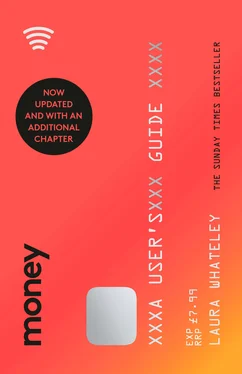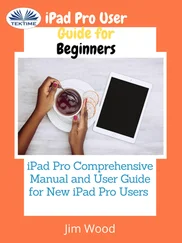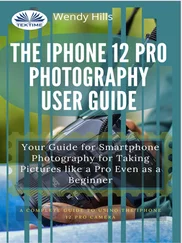The aim is to pay down your mortgage over time and start to own more of your property. If house prices rise your house is worth more, so the amount of loan you have outstanding on it has shrunk relative to its value, though you will not feel the cash benefits of this unless you sell, or remortgage.
If house prices tumble, as happened after the financial crash, you could end up in ‘negative equity’, that is where you owe the bank more in a mortgage than your house is actually worth, and you will not be able to move, becoming what is known as a ‘mortgage prisoner’. Falling into negative equity is less likely than it was, because since the credit crunch banks are much more cautious about how much money they will lend to you.
The amount you can borrow in a mortgage is measured in a ‘loan-to-value’ rate, or LTV, as you will see on mortgage adverts. This is just the percentage mix of deposit and loan. If you had £20,000 cash and wanted to buy a £200,000 house, you would have a 10 per cent deposit, and need to borrow the remaining £180,000 to get your hands on it. That is you need to borrow 90 per cent of the property’s value, or 90 per cent LTV. If you had £180,000 cash and needed to borrow only £20,000 you would have a 90 per cent deposit, and would apply for a 10 per cent LTV mortgage.
Before the Crash it was common to see 100 per cent LTV mortgages. Northern Rock used to have 125 per cent LTV mortgages, which it scrapped in 2008. These existed because there was such general confidence that house prices were on a permanent climb. Banks are no longer so sanguine. Higher LTV loans have been creeping back onto the market aimed at first-time buyers, but banks are being particularly cautious about lending at the moment as a result of the economic uncertainty surrounding COVID-19.
There is a common rule in money matters that the higher the risk the higher the reward (see chapter on the stock market for more on this). If banks are taking a greater risk on you, stumping up £180,000 to lend to you rather than just £20,000, they want more of a reward, so you’ll pay more on top of the sum you want to borrow, generally in the form of interest.
The greater your deposit, the cheaper your mortgage will be
This leads us on to another cruelty for first-time buyers struggling with the cost of housing: all the cheapest mortgage deals with the lowest interest rates are available to the borrowers that banks want the most: those who can save the biggest deposits. All the record-breaking low-interest-rate deals plastered over billboards are generally only given to those borrowing with an LTV of 65 per cent or less, or put the other way, who can contribute a deposit of at least 35 per cent of the cost of the property they want to buy.
Most first-time buyers, especially those buying a flat in an expensive city, will be looking at borrowing with a 5 per cent deposit, or 95 per cent LTV mortgage, or 10 per cent deposit and 90 per cent LTV mortgage. This is extra hard at the moment. Many banks pulled their 90 per cent and 95 per cent LTV mortgages during 2020 to protect against a potential fall in the housing market precipitated by the pandemic. Young borrowers now have a fraction of the choice they had just a few months ago. Before March 2020 there were 391 95 per cent LTV deals, and 779 90 per cent LTV deals, according to the financial analyst Moneyfacts. Now, at the time of writing in autumn 2020, there are barely more than a dozen 95 per cent deals and only just over 50 at 90 per cent. Fingers crossed that over the coming months more banks will start lending to first-time buyers again.
If you can push yourself to find a bigger, at least 10 per cent, deposit, you should. Traditionally, there is a particularly large interest-rate jump between mortgages offered to those with a 5 per cent deposit and those available to those with 10 per cent deposit. This can work out as, for example, £1000 more a year on a mortgage of just £100,000 brokers tell me.
How your bank is judging you
The deposit is most of the battle, but once you have scraped it together you will need to persuade a bank to lend you the rest, and that is a harder and more mysterious process than it used to be. For our parents it was as simple as telling a bank how much they earned. You could borrow a multiple of this. Now, while earnings count, they are not conclusive. Outgoings count just as much. Remember that banks are worried about taking a risk on you, especially when you are a first-timer, so will make all sorts of judgements on your spending pattern to check how safe a bet they can make that you will continue to pay off your mortgage each month.
They do this through looking at your credit score (more on how this works shortly) and your spending patterns, based on analysing bank statements, any debt you are in, and any regular expensive commitments that look fixed, such as a child, dog, Camel Lights habit etc. Your prospective lender will probably want to see at least the last three months of bank statements, as well as payslips, so collect these well in advance and make sure that within this period you do not exceed your overdraft limit or have any bounced payments.
Ray Boulger, of mortgage brokers John Charcol, says you should also bear in mind that a lender will be able to see who you are paying money to, ‘so don’t spend on things you think a lender might disapprove of’ – bouts of online gambling, for example. Also he says give careful thought to signing up to open banking; this will allow a lender to see a longer spending history. (See budgeting chapter for more on open banking.)
You will also have to fill out an application form, detailing your outgoings. If this, or your bank statements, disclose lifestyle choices that make you look like a mega-spender, above-average numbers of holidays or meals out, say, that may reduce the amount you can borrow. The same goes if you have lots of financial debt commitments – such as car finance, personal loans or credit-card debt that you don’t repay in full each month. As long as the debt is not judged excessive, though, it is the amount you are paying in monthly payments, and so reducing what is left to spend, that influences the amount you can borrow, not the outstanding debt. Debt with less than six months to run is usually ignored.
Student loans count only in so far as repaying them means you have less disposable income left in your bank account, which feeds into how much you can afford to borrow. The fact that you have student-loan ‘debt’ does not count against you.
Banks will also look to see how your income or affordability levels may change in future. This is why a former colleague of mine went to the bank to apply for a mortgage with a very baggy top on. If they had known she was going to have a baby, she guessed they would have judged her on balance a greater risk, likely to see both a dip in her earnings and a rise in her outgoings, even though she was pretty confident she could afford a big mortgage just fine.
SIDENOTEIt is illegal for a bank to discriminate against an applicant because she is pregnant, so, like a job interviewer, you cannot be asked: ‘Are you pregnant or do you plan to get pregnant?’ But most will have questions on their application forms like: ‘Do you anticipate any changes to your financial circumstances in the next three months which might make it difficult for you to make your mortgage payments?’
You need to be honest. Lying on the application form is fraud, though you do not have to disclose your pregnancy. It should, however, make you think hard about whether you can actually afford the mortgage you want if your income or circumstances change once you have got it. A bank can only know so much about your ability to repay in the future; it is up to you to gauge how much you want to stretch yourself, knowing what life or job changes lie ahead.
Читать дальше












